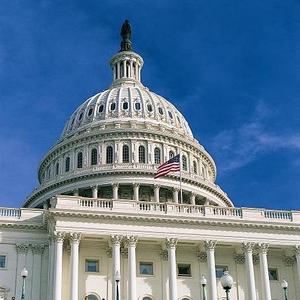Biodiesel advocates call on Congress to reinstate tax incentive

June 20, 2017
BY The National Biodiesel Board
Nearly 100 biodiesel advocates from across the country visited Capitol Hill June 20 and urged Congress to bring back the biodiesel tax incentive. Participants included biodiesel producers, distributors and feedstock suppliers representing more than two dozen states.
“The bipartisan biodiesel tax incentive should be reinstated, as it helps support tens of thousands of jobs nationwide,” said Anne Steckel, vice president of federal affairs at the National Biodiesel Board. “The commonsense reforms proposed in Congress address the unintended consequences of the credit. Creating U.S. jobs, saving taxpayer dollars and reducing waste are goals that most members of Congress can get behind.”
The biodiesel leaders, visiting Washington for an annual membership meeting of the National Biodiesel Board, represent the broad diversity in the industry, with participation from states including Arkansas, California, Connecticut, Iowa, Illinois, Kansas, Louisiana, Massachusetts, Michigan, Minnesota, Mississippi, Missouri, North Dakota, Nebraska, New Jersey, New York, Ohio, Pennsylvania, Rhode Island, South Dakota, Tennessee, Texas, Virginia, Vermont, Washington and Wisconsin.
One theme is clear among members from each of these geographic regions—the biodiesel tax incentive works, having helped grow the biodiesel industry from a 100-million-gallon market in 2005 to more than 2.9 billion gallons in 2016. The current legislative proposals in the U.S. Congress reform the structure of the incentive such that U.S. producers would qualify for the credit, and not those who blend biodiesel from anywhere into the world. Doing so would cut off subsidies for foreign manufacturing, create jobs here at home (instead of in other countries), reduce the potential for tax fraud, continue to lower the cost of diesel fuel for consumers and save taxpayer dollars.
Advertisement
Advertisement
Made from an increasingly diverse mix of resources such as recycled cooking oil, soybean oil and animal fats, biodiesel is a renewable, clean-burning diesel replacement that can be used in existing diesel engines. It is the first and only commercial-scale fuel produced across the U.S. to meet the EPA’s definition as an advanced biofuel—meaning the agency has determined that it reduces greenhouse gas emissions by more than 50 percent when compared with petroleum diesel. It is produced in nearly every state in the country and last year supported some 64,000 jobs nationwide. In addition, biodiesel dramatically reduces most major air pollutants and take wastes out of landfills as well as the nation’s waterways.
The NBB is the U.S. trade association representing the biodiesel and renewable diesel industries, including producers, feedstock suppliers and fuel distributors.
Advertisement
Advertisement
Related Stories
The U.S EPA on July 17 released data showing more than 1.9 billion RINs were generated under the RFS during June, down 11% when compared to the same month of last year. Total RIN generation for the first half of 2025 reached 11.17 billion.
The U.S. EPA on July 17 published updated small refinery exemption (SRE) data, reporting that six new SRE petitions have been filed under the RFS during the past month. A total of 195 SRE petitions are now pending.
The USDA has announced it will delay opening the first quarterly grant application window for FY 2026 REAP funding. The agency cited both an application backlog and the need to disincentivize solar projects as reasons for the delay.
CoBank’s latest quarterly research report, released July 10, highlights current uncertainty around the implementation of three biofuel policies, RFS RVOs, small refinery exemptions (SREs) and the 45Z clean fuels production tax credit.
The U.S. EPA on July 8 hosted virtual public hearing to gather input on the agency’s recently released proposed rule to set 2026 and 2027 RFS RVOs. Members of the biofuel industry were among those to offer testimony during the event.
Upcoming Events










